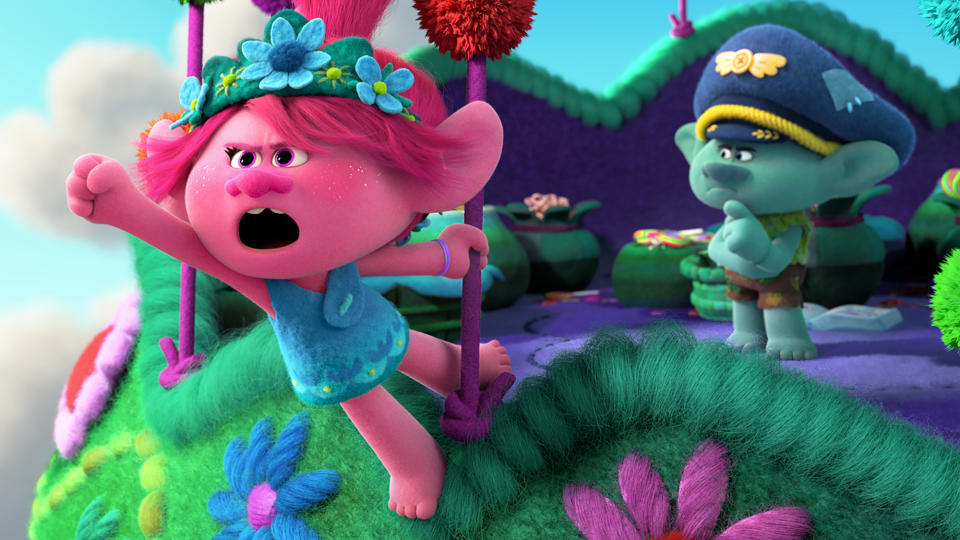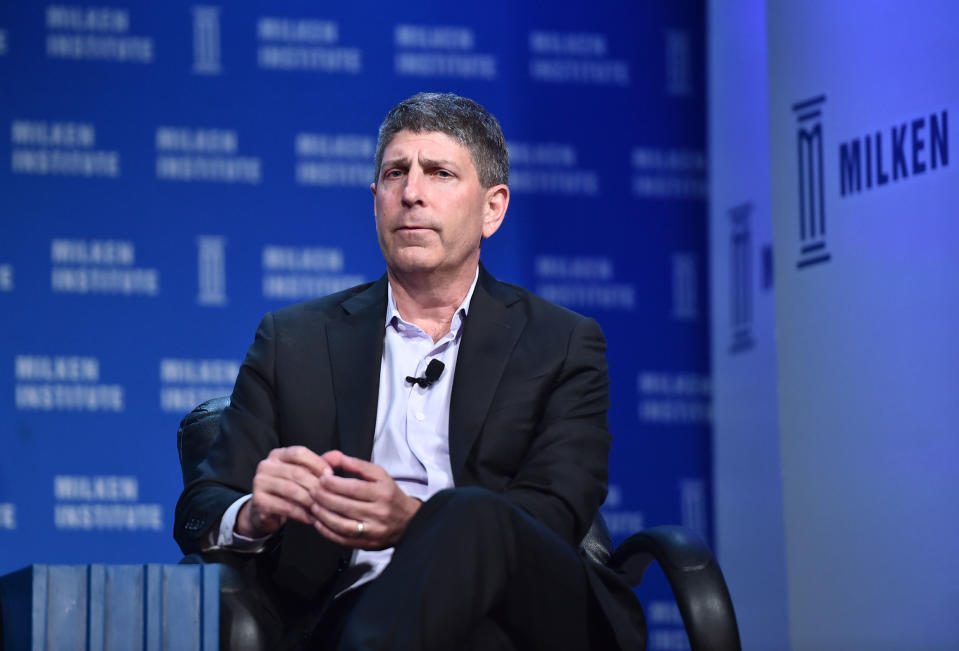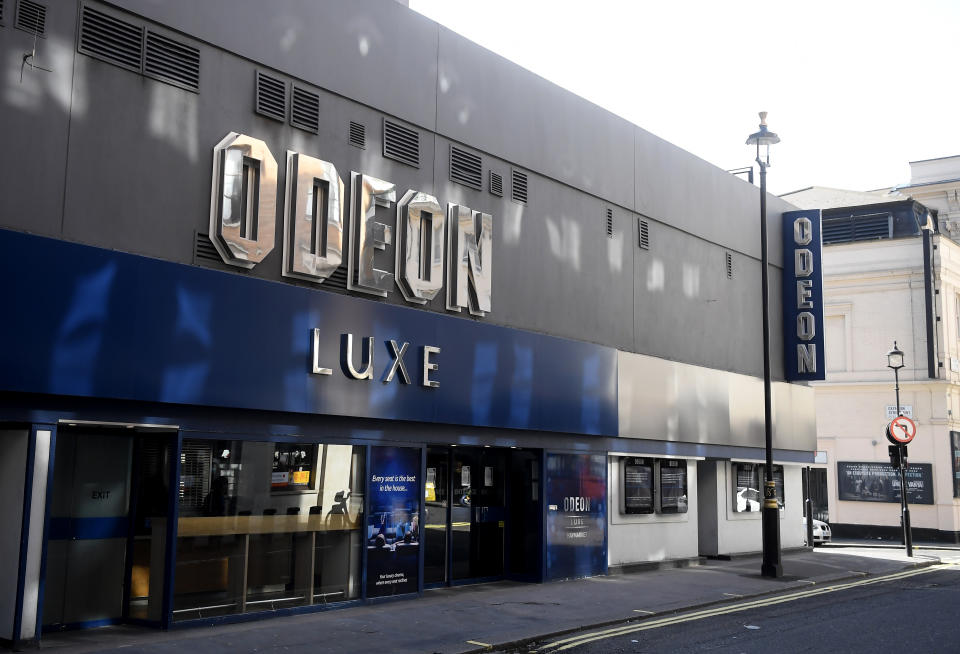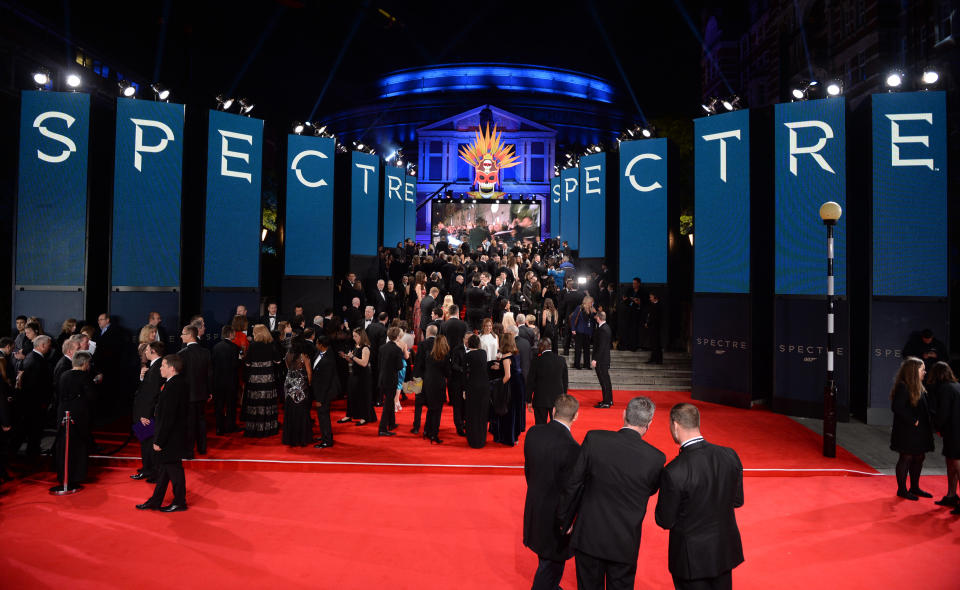Why are Odeon and Cineworld refusing to show some Universal movies?

The film industry has been abuzz over the past 24 hours or so after the boss of AMC Cinemas — which owns UK chain Odeon — declared that none of their multiplexes would show movies from Universal Pictures.
The announcement came in the wake of the VOD release of Trolls World Tour and comments made by CEO Jeff Shell about the potential for day-and-date digital releases in the future.
Cineworld later followed suit, with a statement saying that they were also unhappy about Universal’s release strategy and would consider not showing certain movies from the studio.
But what has prompted this dispute? And what are the implications of these decisions?
A controversial World Tour
Bizarrely, it’s a middle-of-the-road animated movie that’s at the centre of all of this. Trolls World Tour had been planned for a traditional theatrical release in March, but that all changed when the coronavirus pandemic caused cinemas to close all over the world.
Read more: The films on streaming early because of coronavirus
Subsequently, the film was used as a guinea pig for a new release strategy — known as premium video on demand (PVOD).
Trolls is available on various digital platforms for £15.99 ($19.99 in the USA) as a 48-hour rental. It’s a hefty price for a digital title, but the strategy has played out very well for Universal, according to a report in the Wall Street Journal this week.

The article reported that Universal had earned $100m (£80m) from Trolls World Tour in just three weeks on rental platforms, which surpassed their earnings from the original Trolls throughout its entire cinema run. Trolls made $347m (£277m) at the global box office, so these are big figures at play.
On VOD platforms, the studio gets a bigger slice of the purchase price than they do from cinema tickets. Though deals vary, studios often get to keep around 60% of domestic theatrical revenue and numerous reports have suggested this percentage is around 80% for digital rentals.
Read more: How can we fix the cinema experience?
Universal CEO Jeff Shell was quoted in the WSJ article and his apparently simple comments have dropped a bomb on the industry.
He said: “The results for Trolls World Tour have exceeded our expectations and demonstrated the viability of PVOD. As soon as theatres reopen, we expect to release movies on both formats."

Shell moved to clarify his comments on Thursday, with a statement confirming that PVOD would be “part of” the post-coronavirus offering from Universal, rather than a replacement for the theatrical experience.
He added: “The question is, when we come out of this, what is going to be the model? I would expect that consumers will return to theaters and we will be part of that. I also would expect PVOD is going be part of that offering in some way.
“It’s not going to be a replacement, but it will be a complimentary element and we’re just going to have to see how long that takes and where it takes us.”
Trolling the theatrical window
Shell’s comments appear to fly in the face of a sacred element of the cinema-studio relationship: the theatrical window. Traditionally, movies have a 90-day period to play exclusively in multiplexes before they can be released on home entertainment platforms, including digital stores, streaming platforms and DVD/Blu-ray. If Universal were to go ahead with the plans Shell hinted at, this would collapse the theatrical window.
Read more: Is Netflix killing the big screen experience?
AMC boss Adam Aron was, it’s fair to say, upset about this prospect. In his strongly worded statement, he accused Universal of “breaking the business model and dealings between our two companies” and stated that his decision to ban Universal from his cinemas was “not some hollow or ill-considered threat” and would hold true when cinemas re-open.

The studio bit back with a statement of its own, affirming that it “absolutely believes in the the theatrical experience and made no statement to the contrary”.
They added: “As we stated earlier, going forward, we expect to release future films directly to theatres, as well as on PVOD when that distribution outlet makes sense.”
AMC/Odeon was accompanied on this particular battlefield by the Cineworld Group, which owns the Regal chain in the USA as well as Cineworld and Picturehouse in the UK.
The statement said, in part: “There is no argument that the big screen is the best way to watch a movie. Universal unilaterally chose to break our understanding and did so at the height of the COVID-19 crisis when our business is closed, more than 35,000 employees are at home and when we do not yet have a clear date for the reopening of our cinemas.

“Cineworld’s roots go back 90 years in the industry and it was always open to showing any movie as long as the rules were kept and not changed by one-sided moves. Today we make it clear again that we will not be showing movies that fail to respect the windows as it does not make any economic sense for us.”
Read more: Cineworld withdraws BAFTA support over streaming controversy
Crucially, the wording of the Cineworld statement suggests that their ban does not go as far as the Odeon move. Cineworld will disallow “movies that fail to respect the windows”, rather than simply issuing a blanket ban to Universal releases. Given what’s at stake, that’s a crucial distinction.
Trolls World Tour is the only Universal Pictures film that has currently gone from being a theatrical release to a digital release. The distributor has delayed all its other releases including Fast and Furious 9 which has been pushed back to 2021.
What does it mean for the future?

This is a bold move from two of the biggest cinema operators on the planet. Universal has some of the biggest movies of the next 12 months on its slate, with Fast 9 and Minions: The Rise of Gru on the way next year. Most notably, though, Universal is now the distributor of the James Bond franchise and will put No Time to Die — Daniel Craig’s 007 swansong — into multiplexes in November.
James Bond is big business for cinemas, with Spectre earning $881m (£704m) in 2016 and Skyfall managing a colossal $1.1bn (£879m) in 2012. The long wait for No Time to Die, as well as the pandemic-induced dearth of new releases this year, means that Bond is going to even bigger than ever. A billion-dollar gross feels like a minimum.
So with that in mind, cinema chains will definitely want a slice of the Bond pie. Cineworld’s policy does not prevent it from showing No Time to Die as, presumably, Universal will honour the traditional theatrical window rather than offering Bond through the PVOD system. Odeon’s position, however, means that as things stand, it will not show No Time to Die in any of its cinemas across the UK and Europe.

It’s the latest frontier in a battle of increased tensions between studios, who wish to experiment with new and innovative release strategies, and the cinemas who of course want to maintain something close to the current arrangement. A similar furore arose around the BAFTA decision to honour Netflix release Roma last year and the relationship between streaming and cinemas is still rather fraught.
Read more: Artemis Fowl skipping cinemas for Disney+
It seems likely that there will be some sort of arrangement made between now and November that thaws this particularly frosty impasse. But this is a power struggle for the future of movies being waged by some of the most valuable companies on the planet.
And it was all caused by a pink critter voiced by Anna Kendrick singing Gangnam Style.

 Yahoo Movies
Yahoo Movies 
